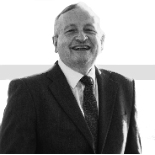The Power of the Press: How Journalism Shapes Public Understanding of Healthcare
In a world where health information can spread at lightning speed, journalism plays a vital role in shaping how the public perceives healthcare. From uncovering medical breakthroughs to exposing systemic failures, the press serves as a bridge between complex scientific knowledge and everyday understanding. Responsible healthcare journalism not only informs but empowers individuals to make educated decisions about their health and well-being.
Informing the Public with Accuracy and Clarity
Healthcare journalism translates the often complicated language of medicine into accessible, understandable information. Reporters and editors work to ensure that medical research, public health updates, and healthcare policies are presented accurately and ethically.
Accurate reporting helps people understand important topics such as disease prevention, vaccination, and emerging treatments. During global health crises — like pandemics or outbreaks — timely and fact-based journalism can literally save lives. Conversely, misinformation or sensationalized headlines can cause confusion and fear, underscoring the need for journalists to maintain high ethical standards and scientific literacy.
Accountability and Advocacy Through Reporting
Beyond education, journalism also holds the healthcare system accountable. Investigative reporters often uncover cases of medical negligence, hospital mismanagement, or unethical pharmaceutical practices. These stories shed light on injustices that might otherwise go unnoticed, leading to reforms and improved patient safety.
When individuals suffer due to medical errors or negligence, legal advocacy becomes equally essential. Choosing a Stockton medical malpractice lawyer means partnering with a skilled advocate who will fight for your rights and justice. Just as journalists seek truth and transparency, medical malpractice attorneys pursue accountability and fairness — both working toward the same goal of protecting the public and improving the integrity of healthcare.
The Human Side of Healthcare Reporting
Healthcare journalism isn’t only about data and policies — it’s about people. Stories of patients overcoming illness, doctors making groundbreaking discoveries, and communities uniting for better health remind readers that medicine is deeply human. These narratives foster empathy and understanding, helping to break down stigma surrounding issues like mental health, disability, or chronic disease.
By focusing on real human experiences, journalists create a stronger emotional connection between readers and the healthcare issues that affect society as a whole.
Challenges in Modern Healthcare Journalism
In the digital age, journalists face unique challenges: information overload, misinformation, and pressure to deliver news quickly. Balancing accuracy with urgency can be difficult, especially when reporting on rapidly evolving medical developments.
Moreover, journalists must navigate ethical questions about privacy, consent, and the potential impact of their stories on patients and families. Upholding integrity and sensitivity remains crucial to maintaining public trust.

